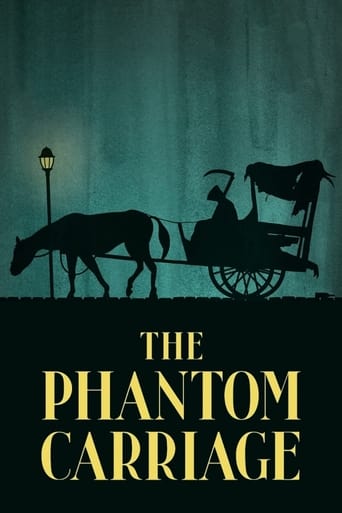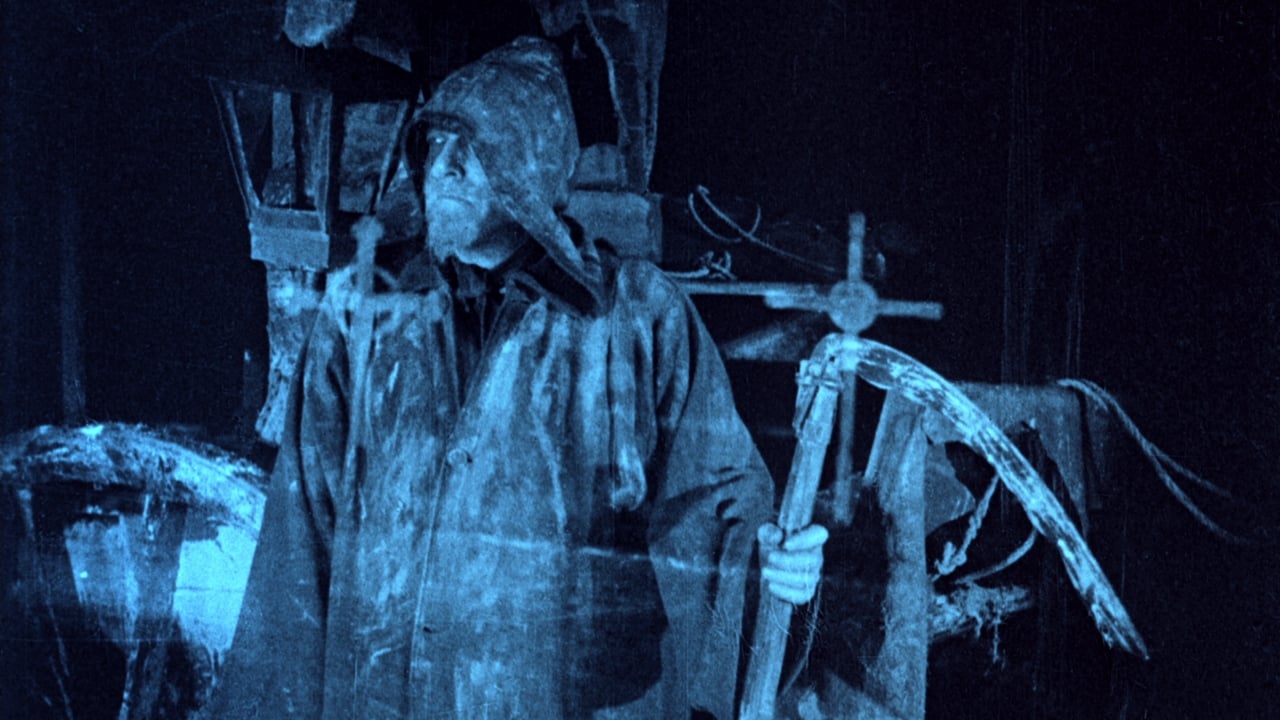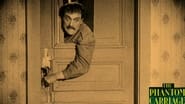Matt Greene
A perfect fit within the sub-genre of "Holiday Films Where the Lead Character Must Examine His Life in Some Unique Way in Order to Right Some Wrongs" (Christmas Carol, It's a Wonderful Life). This is a delicious and retributively satisfying portrayal of pure human wickedness. Told non-sequentially, we see a recently deceased, despicable man learn why he's been cursed to drive a death-cart for a year. An experimental and ahead-of-it's-time tale that uses brilliant early effects to great storytelling purpose.
classicsoncall
All film lovers are aware of the genius of Chaplin and Keaton, but after just one viewing of Victor Sjostrom's "The Phantom Carriage", one will be tempted to include him in the pantheon of silent movie greats along with those better known artists. Not only did Sjostrom direct this film, but is credited as a writer and appeared as the principal character, David Holm. Nominally considered a horror film, I'd prefer to think of this story as a dark morality tale, evocative in many ways of Dickens' "A Christmas Carol", though with a decidedly more sinister bent.What's particularly striking about the film are the visual images created by Sjostrom's extensive use of double exposure to produce other worldly effects such as spirits rising from the recently deceased, or the ghostly image of the phantom carriage itself making it's appointed rounds. The story is told in five parts, although that didn't seem to be necessary as it flowed quite logically with the director's effective use of expository flashback scenes.As strong and unrelenting as the story is, I can't help but feel that it would have made an even more significant impact if in the finale, Sjostrom had allowed Holm's wife to follow through in her determination to leave her misery behind, the result of Holm's neglect and insufferable manner. Had Holm been allowed to 'remain dead', the eternal suffering he would have had to experience would have created one of the most powerful film endings in the history of cinema. As it is, it seemed Sjostrom took the more convenient and 'acceptable' way out for his character, and for movie goers who were still getting used to this new medium.Even so, this is a genuine film masterpiece, proving that even the earliest pioneers in the medium had important things to say and creative ways to say them. The story has a lot to offer about redemption and reconciliation, and effectively moves the principal character through various stages of personal torment before making amends for a misspent life.
avik-basu1889
'The Phantom Carriage' is a very well known silent film which ended up massively influencing huge cinematic stalwarts like Ingmar Bergman and Stanley Kubrick to name a few. Written and directed by Victor Sjöstrom, the film is based on a book of the same name written by Selma Lagerlöf which itself was based on Swedish fairy tales. Sjöstrom himself played the lead character, David Holm.When talking about the themes of 'The Phantom Carriage', I think the first element that has to be addressed is that the film is at its core, essentially engulfed by Christian ideals and principles. The story is about the redemption of a sinner. David Holm is not at all a character who is likable. He is a drunk jerk, a person who refuses to mend his ways no matter what, a person who forces his family to pay for the consequences of his recklessness. However there are glimpses of his humanity scattered in parts in the film. Sjöstrom doesn't shy away from showing that the habit of self- destruction is not something that you can get rid of very easily. There are multiple occasions where others remind him of the man he used to be in order to force him to change his ways. But time and again we see him dismiss their efforts and resort back to his vile, disrespectful and self-destructive ways. There is a scene in the film where Holm is crying and he says that no one wants to believe that he can change and so he can't help but cry. I think this line was used by Sjöstrom as an ironic statement. Sjöstrom wants to imply that it is not others but Holm himself who doesn't want to believe that he can change and go back to being the man he was because he has lost all his faith in life and himself. The idea being advocated here I think is that no matter how much others try, in the end it's only you and your self-realisations that can change your nature. The character of David Holm really reminded me of the titular character played by Harvey Keitel in Abel Ferrara's 'Bad Lieutenant' which was another film dealing with the Christian ideas of redemption. The similarities in the two characters lie in their constant refusal to change and redeem themselves due to a probable lack of faith in their own selves and God. I also loved how the character of Holm goes from the Faust who gets turned to the dark side by the Mephistopheles Georges to becoming the one who himself entices others to the 'pleasures' of alcohol consumption.The basic plot has similarities with the story structure of Dickens' 'A Christmas Carol' and also with 'It's a Wonderful Life'. Much of the plot progresses with the help of flashbacks and Sjöstrom's screenplay very effectively shifts back and forth in time line. The acting also has to be really admired. Although there is usage of exaggerated expressions as was unavoidable in the silent era, there are also some precious moments of subtlety. Sjöstrom, Hilda Borgström and Astrid Holm are the three actors whose performances impressed me the most. Sjöstrom's direction is very assured. His frame compositions are great. There are some extremely haunting shots and images in the film like the extended shot of Mrs.Holm entering the Edit's room or the shot of Mrs.Holm standing with the kids on the pavement while David in his drunken state is lying at her feet, etc. to name a few. The quality of the double exposures to depict the ghostly carriage and spirits was also impressive and gave the scenes the eerie vibe they needed. The soundtrack works well to express the sorrowful spirit of the film.While watching the film I could easily notice how Bergman and Kubrick were inspired by this. The depiction of the grim reaper here must have been an influence for the character of Death in 'The Seventh Seal' and this plot structure of someone looking back at his life to realise the faults of his ways can be seen in Bergman's classic 'Wild Strawberries' where Bergman intentionally cast Sjöstrom in the lead role. When it comes to Kubrick, anyone who has seen 'The Shining', will easily notice the way this film influenced him.I thoroughly enjoyed 'The Phantom Carriage'. The film works as a cautionary tale about the consequences of selling yourself to the bottle and also as a character study based in the ideas of redemption. This is undoubtedly one of the great films from the silent era.
Leofwine_draca
THE PHANTOM CARRIAGE is another classic slice of Scandinavian horror and a follow-up for me after watching HAXAN: WITCHCRAFT THROUGH THE AGES. By comparison, this film's an entirely fictional production about the legend of a phantom carriage that trundles the globe, picking up the souls of the dead wherever it goes.A troup of main characters interact with this legend in a tale of debauchery, drunkenness, and eternal condemnation. The film is heavy on the melodrama but in its story of human relationships and depiction of the human condition it hasn't really aged all that much. Still, the slim narrative comes second to the extraordinarily spooky visuals, as this is a film all about the cinematography. Creepy tinting, bombastic music, and above all the wonderful double exposure effects of the ghostly carriage and its occupants are what you take away from this, and they're wonderfully spooky in the best Halloween tradition.


 AD
AD













